Your cart is currently empty!
Search results for: “70”
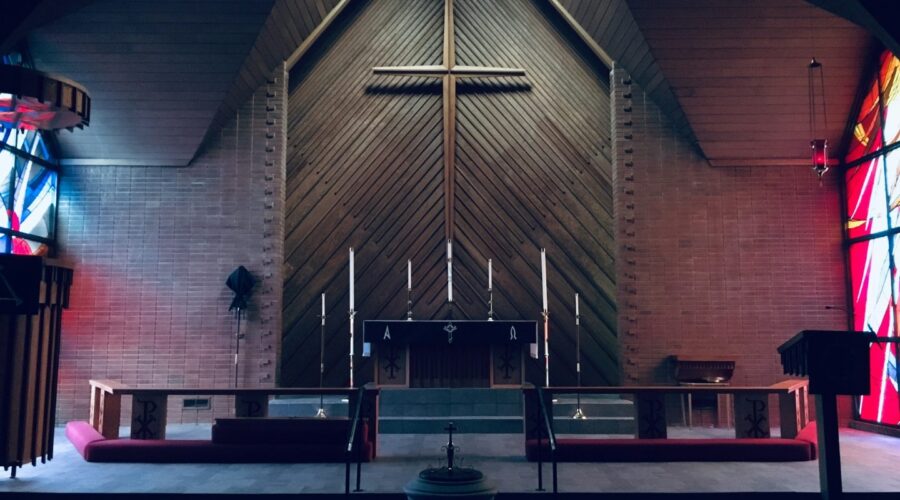
Zion Christian Church: A Comprehensive Guide to Its History, Beliefs, and Practices
Introduction
Zion Christian Church (ZCC) is a Christian denomination that originated in South Africa in the early 20th century. The church is renowned for its large following, vibrant worship services, and influence in various aspects of South African society. This blog post aims to provide a comprehensive overview of ZCC, exploring its history, beliefs, practices, and impact.
History of ZCC
ZCC was founded in 1910 by Engenas Lekganyane, a former minister in the Methodist Church of South Africa. Inspired by a vision, Lekganyane established a new church that emphasized healing, spirituality, and a connection to the African tradition. The church quickly gained popularity among the indigenous African population of South Africa, who resonated with its message of hope and empowerment.
Timeline of Key Events
- 1910: Engenas Lekganyane forms ZCC.
- 1925: The church is formally recognized by the South African government.
- 1948: Lekganyane passes away, and his son Edward succeeds him as leader.
- 1960s-1970s: ZCC experiences rapid growth and becomes a major social and political force in South Africa.
- 1990s-Present: The church continues to grow and expand its reach internationally.
Beliefs of ZCC
ZCC’s beliefs are rooted in Christianity, African tradition, and the teachings of Engenas Lekganyane. The church emphasizes:
Salvation and Healing
ZCC believes in the saving power of Jesus Christ and the ability of prayer and faith to bring about healing and miracles.
Indigenous African Practices
The church incorporates elements of African tradition, such as traditional dress, drumming, and dance, into its worship services and rituals.
Social Justice
ZCC advocates for social justice, community empowerment, and the upliftment of the marginalized.
Practices of ZCC
ZCC’s practices are characterized by vibrant worship services, spiritual rituals, and community involvement:
Worship Services
Worship services are energetic and involve singing, dancing, and prayer. They often feature testimonies and prayers for healing.
Prayer Mountain
ZCC has a sacred site called the Prayer Mountain, where members gather for extended periods of prayer and fasting.
Community Service
The church is active in providing social services, such as healthcare, education, and support for the needy.
Impact of ZCC
ZCC has had a significant impact on South African society:
Religious Influence
ZCC is one of the largest Christian denominations in South Africa, with millions of followers.
Social Power
The church has played a role in political and social movements, advocating for the rights of the marginalized.
Cultural Revival
ZCC has contributed to the revival of African culture and traditions.
Challenges and Controversies
Like any large organization, ZCC has faced some challenges and controversies over the years:
Leadership Issues
There have been disputes and disagreements over leadership succession within the church.
Financial Allegations
The church has been accused of financial mismanagement and misuse of funds.
Traditional Practices
Critics argue that some of ZCC’s traditional practices may conflict with modern science and medicine.
Conclusion
Zion Christian Church is a vibrant and influential Christian denomination that has played a significant role in South African history. Its beliefs, practices, and impact have shaped the religious, social, and cultural landscape of the country. While the church has faced challenges, it continues to be a source of faith, hope, and social activism for millions of followers.
Additional Resources
ZCC Official Website
Wikipedia: Zion Christian Church
BBC: The Zion Christian Church – A powerful force in South Africa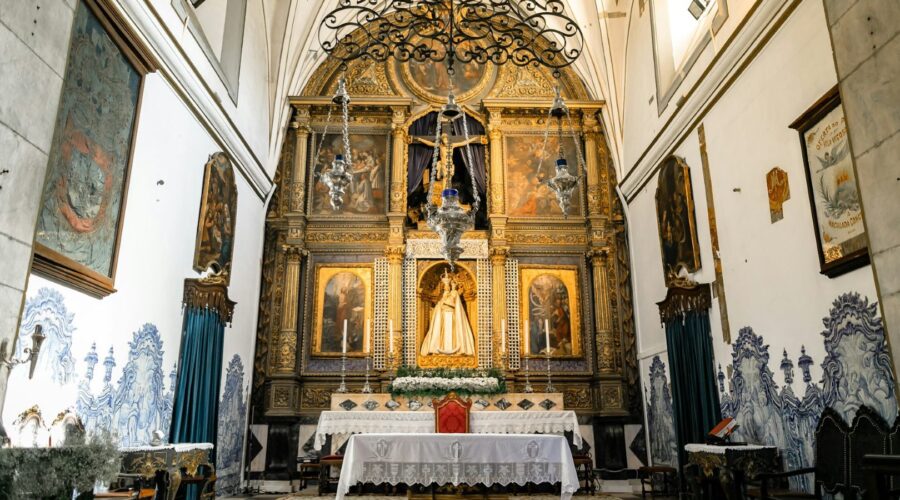
Discover the Vibrant Korean Church: A Comprehensive Guide to its History, Culture, and Impact
Introduction
Korean churches have made a significant impact on the global Christian landscape. With their passionate worship, fervent evangelism, and thriving ministries, they have become a beacon of faith for countless individuals around the world. In this comprehensive guide, we will delve into the history, culture, and impact of Korean churches, providing insights into their unique characteristics and the reasons behind their remarkable success.
History of Korean Churches
Early Beginnings
Christianity was first introduced to Korea in the late 18th century by European missionaries. However, it faced significant resistance from the ruling Confucian government, which considered it a threat to traditional Korean values. Despite these obstacles, Christianity persisted, with the first Korean convert baptized in 1784.
Revival and Growth
In the 19th and early 20th centuries, Christianity experienced a revival in Korea due to factors such as the arrival of American missionaries, the Sino-Japanese War, and the Korean War. This period saw the establishment of numerous churches and the spread of the faith throughout the country.
Post-Korean War Era
After the Korean War, Korean churches entered a period of rapid growth and expansion. The government’s support of Christianity, the economic boom, and the rise of Pentecostalism contributed to their flourishing. Today, Korea boasts one of the highest concentrations of Christians in the world.
Culture of Korean Churches
Emphasis on Worship
Korean churches are known for their passionate and energetic worship services. Music plays a central role, with lively hymns and contemporary praise songs accompanied by enthusiastic dance and clapping. Worship is seen as a way of expressing gratitude, honoring God, and connecting with the divine.
Biblical Literacy
Korean Christians place great emphasis on biblical literacy. Bible study is an integral part of church life, with many churches offering regular classes, seminars, and study groups. Members are encouraged to read and understand the Bible for themselves, fostering a deep understanding of Christian doctrine and principles.
Prayer and Intercession
Prayer is central to the Korean Christian experience. Churches hold regular prayer meetings, during which members come together to pray for their needs, the needs of the church, and the needs of the world. Prayer is seen as a powerful force for change and a way to connect with God.
Impact of Korean Churches
Evangelism and Missions
Korean churches have a strong commitment to evangelism and missions. They actively engage in outreach programs, both within Korea and internationally. Korean missionaries are found in over 170 countries, sharing the Christian message and providing humanitarian aid.
Social Services
Korean churches play a significant role in providing social services to their communities. They run schools, orphanages, medical clinics, and other institutions that meet the needs of the poor, the marginalized, and the elderly. Their social outreach programs often extend beyond the Christian community, fostering a spirit of love and compassion.
Economic Development
Through their various business and entrepreneurial ventures, Korean Christians have made significant contributions to the Korean economy. Many successful Christian-owned businesses have emerged, providing employment and economic growth. The strong work ethic and business acumen of Korean Christians have been instrumental in Korea’s economic development.
Challenges and Opportunities
Despite their remarkable success, Korean churches face certain challenges:
- Balancing Growth and Unity: Maintaining unity and harmony within rapidly growing congregations can be a challenge.
- Generation Gap: Differences in values and beliefs between older and younger generations can create tensions within churches.
- Isolation and Assimilation: Korean churches sometimes struggle with isolation from the larger Christian community and assimilation into Western culture.
These challenges also present opportunities for growth and adaptation:
- Building Bridges: Korean churches can build bridges with other Christian traditions and diverse communities, promoting unity and understanding.
- Ministering to Younger Generations: Churches can engage with younger generations through contemporary worship styles, relevant teachings, and meaningful outreach programs.
- Embracing Cultural Diversity: Churches can embrace the diversity within their congregations and create welcoming environments for people of different ethnicities and backgrounds.
Conclusion
Korean churches have played a vital role in the growth of Christianity globally. Their passionate worship, fervent evangelism, and commitment to social service have made them a force for good in their communities and around the world. As they navigate the challenges and opportunities of the future, Korean churches will continue to be a source of inspiration and a beacon of hope for countless individuals seeking faith and transformation.
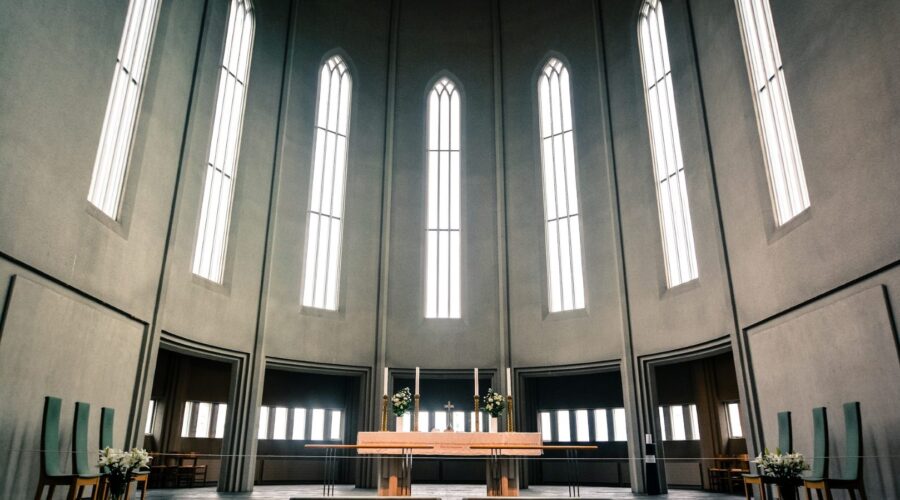
Unlocking the Power of Highland Baptist Church: A Comprehensive Guide to its History, Mission, and Services
Introduction
Nestled in the bustling metropolis of Louisville, Kentucky, Highland Baptist Church stands as a beacon of faith, community, and service. With a rich history spanning over a century, the church has played a pivotal role in shaping the lives of countless individuals and families.
In this comprehensive guide, we will delve into the world of Highland Baptist Church, exploring its origins, mission, ministries, and impact on the Louisville community.
History of Highland Baptist Church
The roots of Highland Baptist Church can be traced back to 1891, when a small group of believers gathered in a rented hall on 26th Street.
Early Years
- 1893: Formal organization as Highland Baptist Church
- 1895: Construction of the first permanent building on Highland Avenue
Growth and Expansion
- 1905: Relocation to a larger building on Oak Street
- 1917-1925: Significant growth under the leadership of Dr. George W. Truett
Modern Era
- 1957: Move to the current location on Bardstown Road
- 1960s-1970s: Emphasis on social justice and community outreach
- 2000s-Present: Continued growth and expansion of ministries
Mission and Values
Highland Baptist Church is anchored by a deep-rooted mission to:
- Proclaim the Gospel of Jesus Christ
- Foster spiritual growth
- Serve the local and global community
- Promote justice, equality, and peace
These values guide all aspects of church life, from worship services to outreach programs.
Ministries
Highland Baptist Church offers a wide range of ministries cater to the needs of people of all ages and backgrounds.
Worship Services
- Traditional and contemporary worship services
- Special services for holidays and events
Children’s and Youth Programs
- Nursery for infants and toddlers
- Sunday School and Bible study for children and youth
- Vacation Bible School and other special events
Adult Ministries
- Bible study and prayer groups
- Small groups for fellowship and support
- Choirs, handbell choir, and orchestra
Outreach Programs
- Food pantry and clothing closet
- Community outreach events
- Support for local and international mission organizations
Impact on the Community
Throughout its history, Highland Baptist Church has made a profound impact on the Louisville community.
Social Justice and Advocacy
- Support for civil rights and racial equality
- Advocacy for the poor and marginalized
- Partnerships with local organizations
Community Services
- Operation of a preschool and after-school program
- Hosting community events and workshops
- Providing meeting space for local groups
How to Get Involved
Join the vibrant community of Highland Baptist Church by:
- Attending worship services
- Participating in a ministry or program
- Volunteering your time or resources
- Donating to the church’s mission
Conclusion
Highland Baptist Church is more than just a place of worship; it is a beacon of faith, a catalyst for change, and a sanctuary for all who seek spiritual growth and community.
With its rich history, unwavering mission, and impactful ministries, Highland Baptist Church continues to play a vital role in shaping the lives of individuals and families in Louisville and beyond.
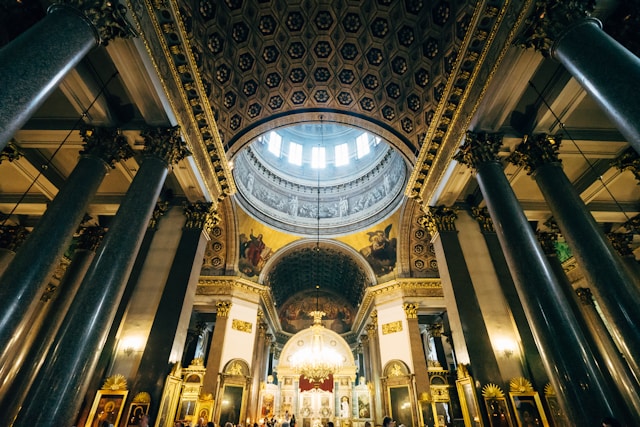
Discover the Holy Redeemer Church: A Beacon of Faith and Inspiration
History and Legacy
Nestled in the heart of Ireland’s capital, Dublin, the Holy Redeemer Church holds a cherished place in the annals of Irish history and Catholicism.
Its origins can be traced back to the early 19th century when a modest chapel was erected on the site. However, it was not until 1888 that the current grand edifice was completed under the direction of the renowned architect J.J. McCarthy.
Throughout its existence, the Holy Redeemer Church has witnessed countless pivotal moments and served as a sanctuary for generations of Irish Catholics.
Architectural Marvel
The Holy Redeemer Church is an architectural masterpiece, showcasing the grandeur and artistry of Victorian Gothic Revivalism.
Exterior
- Imposing twin spires that soar towards the heavens
- Elaborately carved stonework and intricate tracery adorning the façade
- Stained glass windows depicting biblical scenes, creating a kaleidoscope of light
Interior
- Soaring vaulted ceilings and intricate ribbed arches
- Intricately designed altars, pulpits, and confessionals
- Mosaic artwork and frescoes, adding a touch of color and symbolism
Parish and Activities
The Holy Redeemer Church is not merely a historical landmark but a vibrant and active parish.
It serves as a hub for community gathering and spiritual nourishment, offering a wide range of activities and services:
Religious Services
- Daily Mass
- Sunday Mass (multiple services)
- Confession
- Eucharistic Adoration
Community Outreach
- Educational programs for children and adults
- Support groups and counseling services
- Food bank and soup kitchen for the needy
Cultural Events
- Concerts, recitals, and art exhibitions
- Historical tours of the church and its surroundings
Restoration and Preservation
Over time, the Holy Redeemer Church has undergone several restoration and preservation efforts to maintain its historical integrity.
In the 1970s, the exterior was meticulously cleaned and repaired, restoring its pristine appearance.
More recently, the interior underwent a comprehensive renovation, carefully preserving the original features while enhancing accessibility and comfort for visitors.
Visitor Information
The Holy Redeemer Church welcomes visitors from all walks of life to explore its architectural beauty and experience its spiritual significance.
Location and Transportation
- Address: 14 Upper Gardiner Street, Dublin 1, Ireland
- Easily accessible by public transportation, including bus and tram
Visiting Hours
- Open daily: 7:00 AM – 7:00 PM
- Guided tours available upon request
Contact Information
- Website: www.holyredeemer.ie
- Email: [email protected]
- Phone: +353 (0)1 874 7874
Conclusion
The Holy Redeemer Church stands as a testament to the enduring spirit of faith and the power of architectural beauty.
Whether you seek spiritual enrichment, historical appreciation, or simply a breathtaking experience, a visit to this iconic landmark is an unforgettable journey that will leave you inspired and moved.
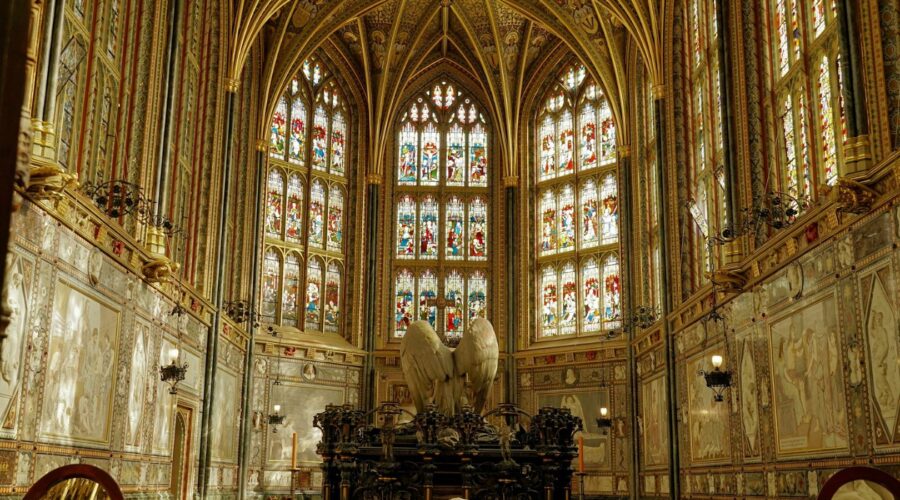
Unveiling the Significance of Holy Rosary Sunday: A Journey of Faith and Devotion
Introduction
Holy Rosary Sunday holds a special place in the hearts of Catholics worldwide. It is a day set aside to honor the Blessed Virgin Mary and reflect upon the profound impact of the Rosary in our lives. This blog post delves into the essence of Holy Rosary Sunday, exploring its history, traditions, and spiritual significance.
Origins and History
The origins of Holy Rosary Sunday can be traced back to the 13th century, when the Dominican Order was founded by Saint Dominic. Saint Dominic believed in the power of the Rosary as a tool for evangelization and personal devotion. In 1470, Pope Sixtus IV extended the feast day of the Rosary to the entire Church, and in 1883, Pope Leo XIII established Holy Rosary Sunday as a specific solemnity on the first Sunday of October.
The Rosary: A Prayerful Journey
The Rosary is a form of Marian devotion consisting of 20 decades of prayers. Each decade includes an Our Father, 10 Hail Marys, and a Glory Be. The prayers are often accompanied by the meditation on specific events in the life of Jesus Christ and the Blessed Virgin Mary, known as the Mysteries of the Rosary. There are four sets of Mysteries: the Joyful, the Luminous, the Sorrowful, and the Glorious.
Benefits of Praying the Rosary
- Strengthens our connection with God and Mary
- Provides a structured way for meditation and reflection
- Intercedes for us through the intercession of Mary
- Brings peace and comfort in times of need
Holy Rosary Sunday Celebrations
Holy Rosary Sunday is typically marked with special celebrations in Catholic parishes worldwide. These include:
Devotional Practices
- Praying the Rosary publicly or privately
- Attending Mass with a focus on the Rosary
- Visiting Marian shrines or chapels
Community Gatherings
- Parishes or communities organizing Rosaries in public spaces
- Processions with the statue of the Blessed Virgin Mary
- Sharing of testimonies and experiences related to the Rosary
Spiritual Significance
Holy Rosary Sunday serves as a reminder of the importance of Mary in our faith journey. It invites us to reflect on her role as an intercessor, a model of prayer, and a source of inspiration. The Rosary is a powerful means of connecting with Mary and through her, with Jesus Christ. By praying the Rosary, we not only honor Mary but also deepen our relationship with God.
Practical Tips for Meaningful Observation
To make Holy Rosary Sunday truly meaningful, consider the following tips:
- Set aside time to pray the Rosary individually or with a group.
- Meditate on the Mysteries of the Rosary, allowing them to deepen your faith.
- Ask Mary for her intercession in your life and in the world.
- Share your experiences and insights related to the Rosary with others.
- Consider visiting a Marian shrine or chapel to deepen your connection with Mary.
- Use the Rosary as a tool for evangelization, sharing its beauty and significance with those you encounter.
Conclusion
Holy Rosary Sunday is a cherished celebration in the Catholic Church, a time to honor the Blessed Virgin Mary and the transformative power of the Rosary. By participating in the devotional practices and spiritual reflections associated with this day, we strengthen our faith, deepen our connection with Mary, and experience the peace and joy that comes from praying the Rosary. May Holy Rosary Sunday inspire us to live lives of devotion and love, always seeking the intercession of Mary and the guidance of Jesus Christ. “Amen.”
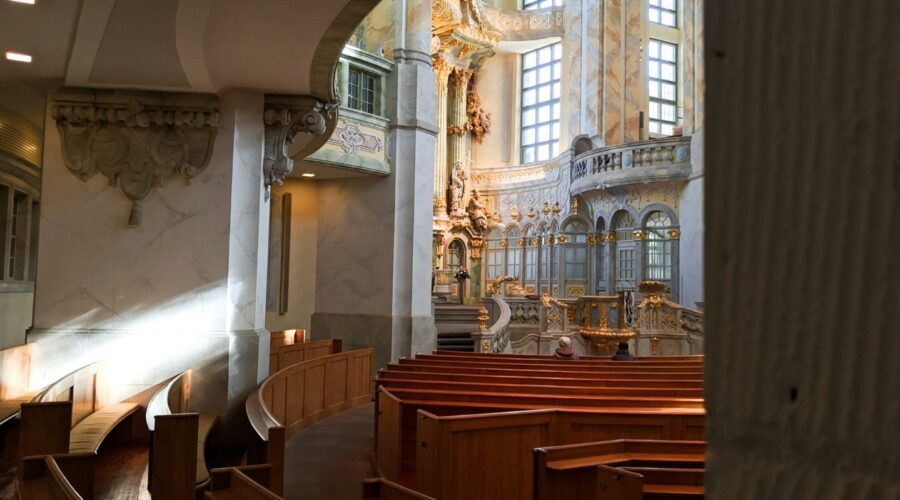
Understanding the Covenant Presbyterian Church: A Comprehensive Guide
Introduction
Covenant Presbyterian Church (CPC) is a denomination within the Reformed tradition of Christianity. It is characterized by its commitment to the Westminster Confession of Faith and its distinctive understanding of the covenant relationship between God and humanity.
Historical Background
Origins
CPC traces its roots to the Protestant Reformation of the 16th century. John Knox, a Scottish reformer, played a key role in establishing the Presbyterian Church in Scotland. The Westminster Assembly (1643-1652), convened by the English Parliament, produced the Westminster Confession of Faith, which has become the doctrinal standard for CPC.
Spread to America
Presbyterians arrived in North America in the 17th century. The first CPC was established in Philadelphia in 1706. Over time, CPC expanded westward, becoming a major force in American Protestantism.
Theology and Beliefs
Covenant Theology
CPC emphasizes the importance of covenant theology. The covenant is a binding agreement between God and humans. In the Old Testament, the covenant was established with Abraham and his descendants. In the New Testament, the covenant is renewed in Christ, who fulfills the promises made to Abraham.
Westminster Confession of Faith
The Westminster Confession of Faith is the primary doctrinal statement of CPC. It covers a wide range of theological topics, including the Trinity, the deity of Christ, salvation by grace, and the role of the church.
Presbyterian Polity
CPC is governed by a system of representative government called presbyterian polity. The church is led by elders (presbyters), who are elected by the congregation. Elders serve on governing bodies known as sessions, presbyteries, and general assemblies.
Governance and Structure
Organization
CPC is organized into local congregations, presbyteries, and a national body known as the General Assembly. The General Assembly is the highest governing body of the denomination and meets annually.
Leadership
CPC is led by a Moderator, who is elected by the General Assembly. The Moderator serves for a one-year term and presides over the assembly.
Synods and Presbyteries
CPC is divided into geographical units called synods and presbyteries. Synods are regional bodies that oversee multiple presbyteries. Presbyteries are responsible for appointing and ordaining clergy and overseeing the work of congregations.
Worship and Sacraments
Worship Services
CPC worship services typically include singing, prayer, Bible reading, and preaching. The Lord’s Supper (Communion) is celebrated regularly.
Sacraments
CPC recognizes two sacraments: baptism and the Lord’s Supper. Baptism is a sign of the covenant relationship between God and believers. The Lord’s Supper is a commemoration of Christ’s sacrifice on the cross.
Mission and Outreach
Evangelism and Missions
CPC is committed to spreading the gospel of Jesus Christ. It supports missionaries around the world and engages in evangelistic outreach in local communities.
Social Justice and Advocacy
CPC believes that Christians have a responsibility to promote social justice and advocate for the marginalized. It addresses issues such as poverty, discrimination, and environmental stewardship.
Education and Seminaries
Schools and Colleges
CPC operates a number of schools and colleges, including Princeton University, Columbia Theological Seminary, and Union Presbyterian Seminary.
Seminary Training
CPC pastors are required to attend seminary. Seminaries provide theological education and prepare candidates for ordination.
Conclusion
Covenant Presbyterian Church is a vibrant denomination with a rich history and distinctive theology. Its emphasis on covenant theology, the Westminster Confession of Faith, and presbyterian polity sets it apart from other Christian denominations. CPC is committed to worship, evangelism, social justice, and the preparation of future church leaders.
Helpful Resources
- Covenant Presbyterian Church website
- Presbyterian Church (U.S.A.) website
- Westminster Confession of Faith
Frequently Asked Questions
What is the difference between CPC and other Presbyterian denominations?
CPC differs from other Presbyterian denominations in its emphasis on covenant theology and its use of the Westminster Confession of Faith as its doctrinal standard.
How is CPC governed?
CPC is governed by a system of representative government called presbyterian polity. Elders (presbyters) elected by the congregation serve on governing bodies known as sessions, presbyteries, and general assemblies.
What are the sacraments of CPC?
CPC recognizes two sacraments: baptism and the Lord’s Supper. Baptism is a sign of the covenant relationship between God and believers, and the Lord’s Supper is a commemoration of Christ’s sacrifice on the cross.
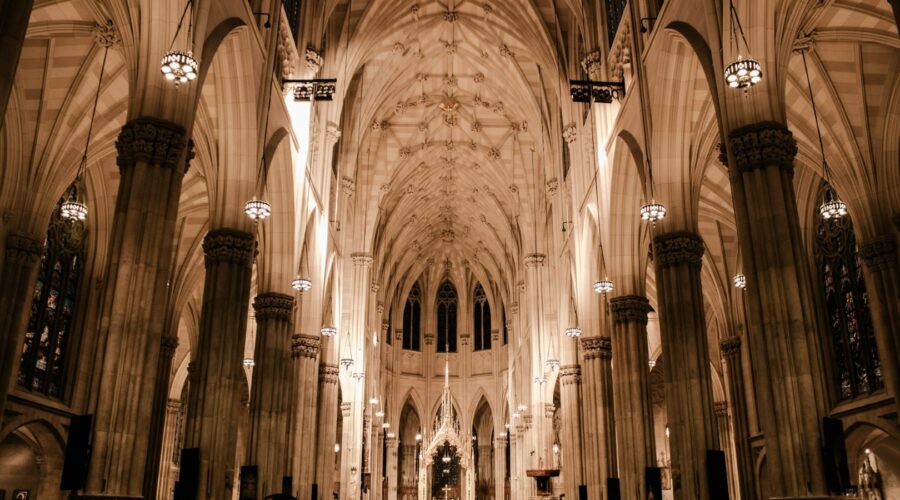
The Redeemed Christian Church of God: A Comprehensive Guide
Overview
The Redeemed Christian Church of God (RCCG) is a Pentecostal Christian denomination with a global presence. It was founded in Nigeria in 1952 by Josiah Akindayomi and has since grown to become one of the largest churches in the world.
History
The RCCG traces its roots to a prayer group founded by Akindayomi in 1952. The group grew rapidly and in 1957, it was formally registered as a church. In the 1970s, the RCCG began to expand outside of Nigeria, establishing churches in other African countries, Europe, and North America.
Doctrine
The RCCG is based on the belief that salvation is found through faith in Jesus Christ. The church emphasizes the need for personal holiness and spiritual growth. The RCCG also believes in the gifts of the Holy Spirit, such as speaking in tongues, healing, and prophecy.
Structure
The RCCG is led by a General Overseer, who is the spiritual head of the church. The church is divided into regions, each of which is led by a Regional Overseer. Regions are further divided into provinces, led by Provincial Pastors.
Worship
RCCG worship services are typically lively and energetic. They include singing, dancing, and preaching. The church also emphasizes prayer and fasting.
Youth and Children’s Ministries
The RCCG has a strong youth ministry, known as the Youth Church. The Youth Church provides opportunities for young people to grow in their faith and serve their community.
The church also has a children’s ministry, known as the Children’s Church. The Children’s Church teaches children about the Bible and helps them to develop their faith.
Outreach Programs
The RCCG is involved in a number of outreach programs, such as medical missions, food distribution, and education. The church also supports orphanages and other social service organizations.
Membership
The RCCG has a worldwide membership of over 20 million people. Members come from a variety of backgrounds and cultures.
Controversies
The RCCG has been involved in a number of controversies over the years. These include allegations of financial impropriety and discrimination against women.
Conclusion
The Redeemed Christian Church of God is a global Pentecostal denomination with a strong emphasis on personal holiness and spiritual growth. The church has a worldwide membership of over 20 million people and is involved in a number of outreach programs.
Additional Information
- RCCG website: https://rccg.org
- RCCG YouTube channel: https://www.youtube.com/user/rccgofficial
- RCCG Twitter account: https://twitter.com/rccghq
Table of RCCG Structures
Level Leader General Overseer General Overseer Regional Overseer Regional Overseer Provincial Pastor Provincial Pastor 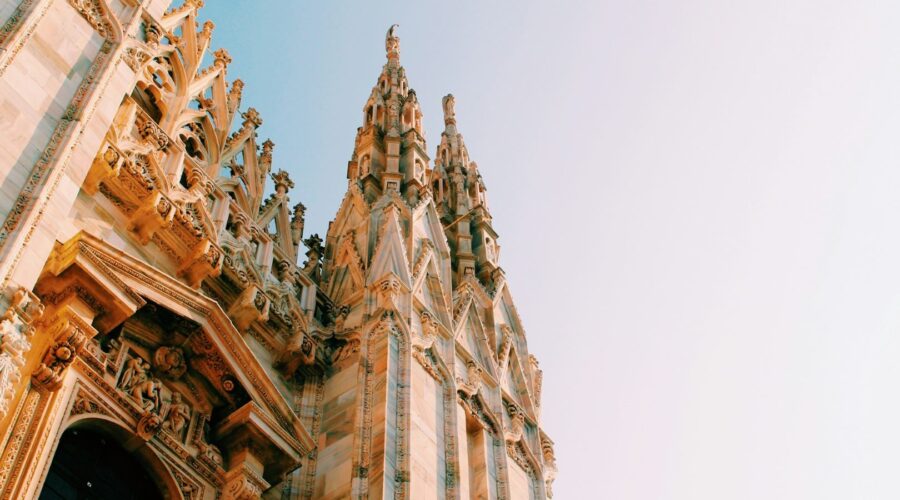
A Comprehensive Guide to St. James United Methodist Church
Welcome to the official blog of St. James United Methodist Church, where we invite you to explore the rich history, vibrant community, and transformative ministries that define our congregation.
About St. James United Methodist Church
Founded in 1850, St. James United Methodist Church has been an integral part of the North Dallas community for over 170 years. As a vibrant and welcoming congregation, we are committed to living out our faith through discipleship, outreach, and worship.
We believe in the power of community and strive to create a welcoming and inclusive space for all who enter our doors. At St. James, you will find a diverse group of individuals from all walks of life, united by a shared faith and a commitment to serving our neighbors.
Our Mission and Values
Mission: To make disciples of Jesus Christ for the transformation of the world.
Values:
- Welcoming: We welcome all people, regardless of their background or beliefs, into our community.
- Transformative: We believe in the transformative power of God and strive to create opportunities for spiritual growth and personal transformation.
- Service-Oriented: We are committed to serving our neighbors and the community through outreach programs and volunteer initiatives.
- Disciple-Making: We believe in the importance of discipleship and provide resources and support to help individuals grow in their faith.
Our Ministries
At St. James United Methodist Church, we offer a wide range of ministries and programs to meet the diverse needs of our congregation and community.
Worship
We offer a variety of worship services throughout the week, including:
- Traditional Worship: Sundays at 8:45 AM and 11:00 AM
- Contemporary Worship: Sundays at 9:45 AM
- Taizé Worship: Wednesdays at 6:30 PM
Discipleship
We provide opportunities for spiritual growth and development through:
- Small Groups: Connect with other believers in a small group setting for Bible study, prayer, and fellowship.
- Discipleship Classes: Explore different aspects of the Christian faith through our ongoing discipleship classes.
Outreach
We believe in serving our community and offer a variety of outreach programs:
- Community Care: Provide support and assistance to individuals and families in need through our Community Care ministry.
- ServeKC: Partner with local organizations to address pressing issues in our community through volunteering and advocacy.
Education
We offer educational programs for all ages, including:
- Sunday School: Classes for children, youth, and adults to learn about the Bible and grow in faith.
- Confirmation: A program for youth to explore their faith and make a commitment to follow Jesus.
Our Staff
We are led by a dedicated team of pastors and staff members who are committed to serving our congregation and community.
Name Title Rev. Dr. David Gibson Senior Pastor Rev. Susan Smith Associate Pastor for Discipleship Rev. John Doe Associate Pastor for Outreach Mary Jones Director of Education Bob Smith Director of Music Get Involved
We invite you to join our vibrant community and experience the transformative power of St. James United Methodist Church.
- Visit our website to learn more about our ministries and programs.
- Attend one of our worship services and experience our welcoming and inspiring community firsthand.
- Contact us at [email protected] to learn more about how you can get involved.
Conclusion
Thank you for exploring St. James United Methodist Church. We believe that our community is a place where you can grow in faith, connect with others, and make a positive impact on the world. We invite you to join us as we strive to live out our mission and values every day.
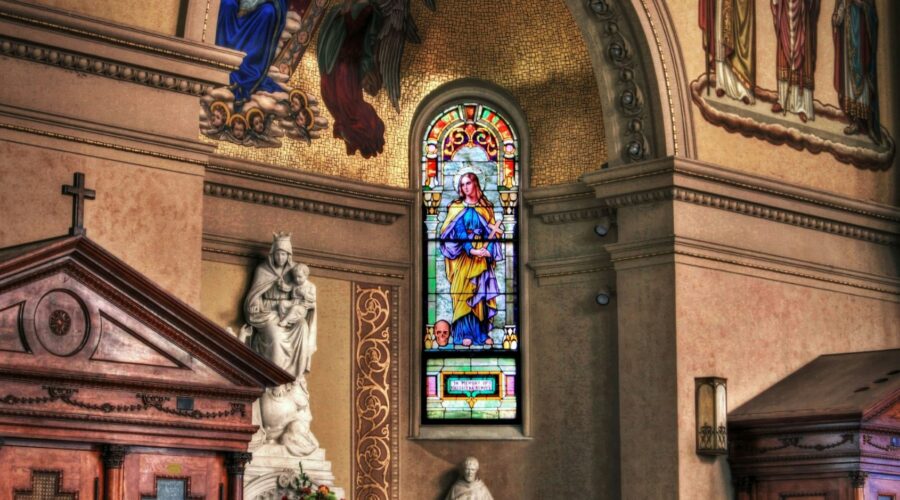
Discover the Rich History and Impact of Messiah Lutheran Church
Introduction
Messiah Lutheran Church stands as a beacon of faith, service, and community in the heart of a vibrant neighborhood. With a rich history spanning over a century, the church has been a cornerstone of its surroundings, fostering spiritual growth, social justice, and personal enrichment.
Historical Foundations
Messiah Lutheran Church was founded in 1893 by a group of German immigrants seeking a spiritual home in a new land. The congregation initially gathered in a small wooden structure, which served as a place of worship, fellowship, and mutual support. Over the years, the church grew and expanded, reflecting the increasing diversity of the neighborhood.
Key Historical Milestones
- 1893: Founding of Messiah Lutheran Church
- 1905: Construction of the first permanent building
- 1950s: Expansion and modernization of the church facilities
- 1970s: Establishment of social service programs
- 1990s: Renovation and restoration of the historic building
li>1960s: Involvement in the civil rights movement
Core Beliefs and Values
Messiah Lutheran Church adheres to the Evangelical Lutheran tradition, which emphasizes:
Sola Scriptura (Scripture Alone)
The Bible is the sole source of authoritative teaching on faith and practice.
Sola Gratia (Grace Alone)
Salvation is unmerited and is a gift from God through faith in Jesus Christ.
Sola Fide (Faith Alone)
Justification and reconciliation with God are based solely on faith in Christ.
Mission and Outreach
Messiah Lutheran Church’s mission is to
- Proclaim the Gospel of Jesus Christ
- Serve the needs of the community
- Foster Christian growth and discipleship
The church has been actively involved in local and global outreach programs, including:
Social Services
- Food pantry for those in need
- Clothing and hygiene assistance
- Emergency financial assistance
Educational Programs
- Bible study classes
- Sunday school for children and youth
- Confirmation classes for teenagers
Community Partnerships
- Collaboration with local schools and organizations
- Support for neighborhood improvement and revitalization initiatives
- Participation in interfaith dialogues
Worship and Music
At Messiah Lutheran Church, worship is a central part of the congregational life.
Worship Services
The church offers various worship services each week, including:
- Traditional Lutheran liturgy
- Contemporary and intergenerational services
- Spanish-language services
Music Program
Messiah Lutheran Church has a strong music program, featuring:
- Adult and children’s choirs
- Instrumental ensembles
- Regular concerts and music performances
Educational and Cultural Opportunities
Messiah Lutheran Church is not only a place of worship but also a center for education and cultural enrichment. The church offers a range of programs, including:
Adult Education Classes
- Bible studies
- Book clubs
- Lectures and workshops
Cultural Events
- Art exhibitions
- Concerts
- Film screenings
Library and Resource Center
- Extensive collection of books and resources
- Quiet space for study and research
- Access to online databases
Membership and Involvement
Becoming a member of Messiah Lutheran Church is open to all who desire to follow Christ and participate actively in the life of the congregation. Membership benefits include:
- Participation in worship, fellowship, and service opportunities
- Access to educational and cultural programs
- Support and encouragement from a caring community
Contact Information and Location
Messiah Lutheran Church
123 Main Street
Anytown, CA 54321[email protected]
www.messiah.orgConclusion
Messiah Lutheran Church is more than just a building; it is a vibrant and diverse community that has played a significant role in shaping the spiritual, social, and cultural landscape of its neighborhood. Guided by its core beliefs, values, and mission, the church continues to be a beacon of hope, compassion, and service for generations to come.
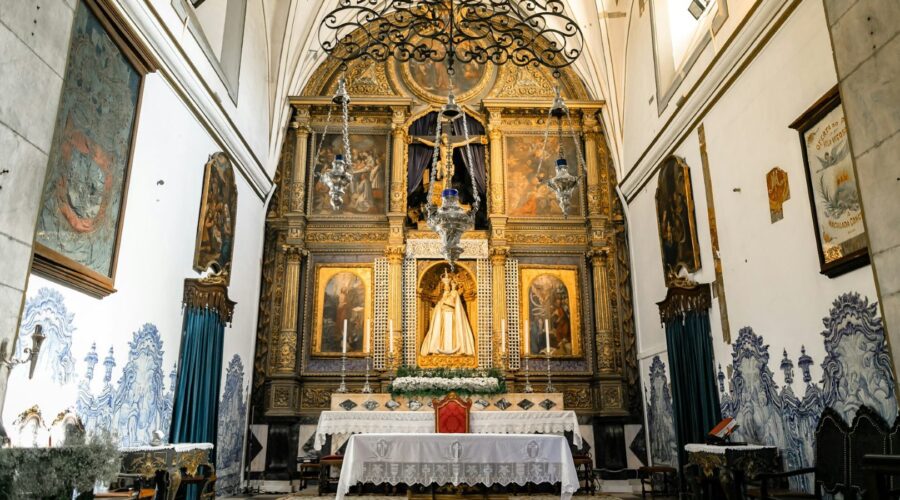
Northside Church: A Comprehensive Guide to Atlanta’s Megachurch
Introduction
Northside Church is a non-denominational megachurch located in Atlanta, Georgia. Founded in 1977, the church has grown to become one of the largest in the country, with over 30,000 members and multiple campuses across the metropolitan area.
History and Vision
Early Years (1977-1995)
Northside Church was founded by Dr. Joel C. Hunter, who served as its senior pastor for over four decades. The church began with a small group of just 50 people and gradually expanded its reach through community outreach and evangelistic programs.
Growth and Expansion (1995-2022)
Under Hunter’s leadership, Northside Church experienced significant growth. The church purchased a large campus in Alpharetta, Georgia in 1995 and began broadcasting its services to audiences around the world. It also established multiple branch campuses in the Atlanta area and launched various ministries and programs to meet the needs of its growing congregation.
Transition and New Direction (2022-Present)
In 2022, Dr. Hunter retired as senior pastor of Northside Church and was succeeded by Dr. Steve Briggs. Under Briggs’ leadership, the church has continued its focus on community engagement and spiritual growth while also exploring new initiatives in technology and digital ministry.
Campuses and Locations
- Alpharetta Campus (Main Campus)
- Sandy Springs Campus
- Chamblee Campus
- Johns Creek Campus
- Cumming Campus
- Gwinnett Campus
Ministries and Programs
Northside Church offers a wide range of ministries and programs for people of all ages and backgrounds.
Worship and Music
Northside Church is known for its vibrant worship services, which feature contemporary music, engaging sermons, and a focus on spiritual connection.
Children and Youth
The church has extensive programs for children and youth, including Sunday School, youth groups, and mentorship programs.
Small Groups
Northside Church encourages members to connect with each other through small groups, where they can build relationships, share their faith, and support one another.
Community Outreach and Social Justice
Northside Church has a strong commitment to community outreach and social justice. The church supports a variety of ministries that address issues such as poverty, homelessness, and healthcare access.
Leaders and Staff
Senior Pastor
Executive Pastor
Chief Finance Officer
Giving and Stewardship
Northside Church encourages members to give generously to support its ministries and outreach programs. The church offers various ways to give, including online giving, text-to-give, and giving envelopes.
Conclusion
Northside Church is a dynamic and growing megachurch that plays a significant role in the spiritual and social fabric of Atlanta. With its vibrant worship services, diverse ministries, and commitment to community engagement, Northside Church continues to inspire and uplift its members and serve the broader community.
Northside Church Campuses Campus Address Contact Alpharetta Campus 12010 Haynes Bridge Road, Alpharetta, GA 30009 (770) 645-5000 Sandy Springs Campus 5975 Roswell Road, Sandy Springs, GA 30328 (770) 645-5000 Chamblee Campus 5140 Chamblee Dunwoody Road, Dunwoody, GA 30338 (404) 457-5566 Johns Creek Campus 11230 Medlock Bridge Road, Johns Creek, GA 30097 (770) 474-3300 Cumming Campus 4370 Peachtree Parkway, Cumming, GA 30041 (470) 253-0700 Gwinnett Campus 4090 Peachtree Industrial Boulevard, Buford, GA 30518 (770) 474-3300 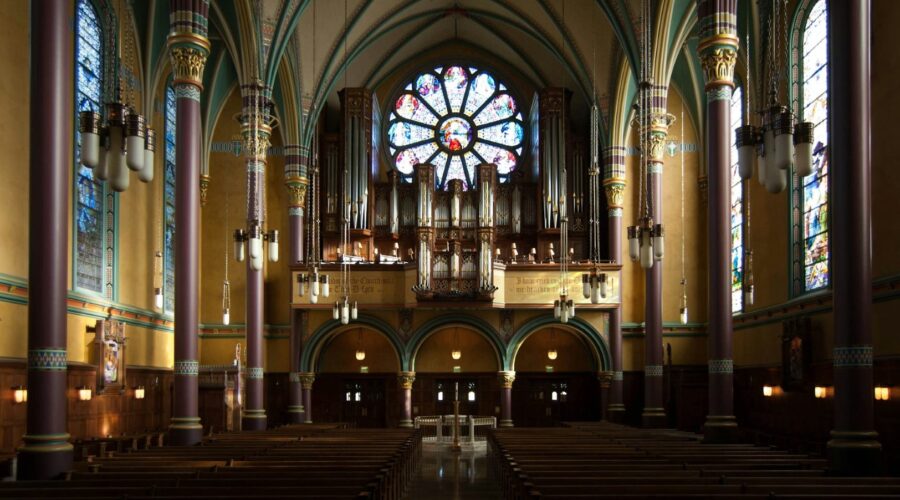
Discover the History, Significance, and Splendor of St. John Vianney Church
Introduction
St. John Vianney Church, nestled in the heart of the vibrant city of Indianapolis, Indiana, is a magnificent architectural masterpiece that has captivated the hearts of locals and visitors alike. This hallowed sanctuary, named after the patron saint of parish priests, stands as a testament to faith, devotion, and the enduring spirit of the Catholic community. In this comprehensive guide, we delve into the rich history, architectural grandeur, and spiritual significance of this awe-inspiring edifice.
A Historical Journey: The Genesis of St. John Vianney Church
The story of St. John Vianney Church begins in the mid-19th century, when a surge of Catholic immigrants arrived in Indianapolis. The need for a dedicated place of worship soon became apparent, and in 1868, Father Joseph Kundeck purchased land for the construction of the church.
The cornerstone was laid on June 13, 1871, and the church was completed two years later. The original structure, designed in the Gothic Revival style, featured a simple nave with a vaulted ceiling, a small sanctuary, and a tower with a spire. Over the years, the church underwent several expansions and renovations to accommodate the growing congregation.
Architectural Marvel: Unraveling the Beauty of St. John Vianney Church
The Nave and Transepts
The nave of St. John Vianney Church is a breathtaking sight, characterized by its soaring vaulted ceiling adorned with intricate plasterwork and stained-glass windows that bathe the interior in a kaleidoscope of colors. The transepts, which extend out from the nave, add to the sense of spaciousness and grandeur.
The Sanctuary and Altar
The sanctuary, the focal point of the church, exudes an aura of reverence and awe. The altar, crafted from Italian marble, is the centerpiece of the sanctuary, where the sacrifice of the Eucharist is celebrated. The reredos, an elaborate backdrop behind the altar, features intricate carvings and depicts scenes from the life of Christ.
The Tower and Spires
The iconic tower of St. John Vianney Church dominates the cityscape, rising an impressive 186 feet into the sky. The tower is adorned with four corner turrets and topped by a graceful copper dome and a cross. The church also boasts two smaller spires on the transepts.
Spiritual Significance: A Beacon of Faith and Community
The Parish Community
St. John Vianney Church is the spiritual home to a vibrant and diverse Catholic community. The parish offers a wide range of programs and ministries, including Sunday School, Bible study groups, food pantries, and social justice initiatives. The church is also known for its strong support of Catholic education.
Liturgical Celebrations
The liturgical celebrations at St. John Vianney Church are a testament to the enduring power of Catholic faith. The Mass, the central sacrament of the Catholic Church, is celebrated daily in both English and Spanish. The church also hosts special liturgical events throughout the year, including Holy Week liturgies, Christmas Eve Mass, and Corpus Christi processions.
Devotional Practices
St. John Vianney Church serves as a place of pilgrimage and devotion for Catholics from Indianapolis and beyond. The church is home to a relic of St. John Vianney, the patron saint of the church, and many faithful visitors come to pray and seek his intercession.
Practical Information for Visitors
Location and Directions
St. John Vianney Church is located at 1701 E. Hanna Avenue, Indianapolis, IN 46227. The church is easily accessible by car, with ample parking available on site.
Mass Times and Other Liturgical Events
- Sunday: 8:00 AM, 9:30 AM (Spanish), 11:00 AM, 5:00 PM (Spanish)
- Monday-Saturday: 8:00 AM, 5:00 PM
- Holy Days of Obligation: Consult the church bulletin or website for special Mass times.
Contact Information
For more information or to schedule a tour, please contact the parish office at (317) 787-1882 or visit the church’s website at www.stjohnvianneyindy.org.
Conclusion
St. John Vianney Church is not just a building; it is a living testament to the enduring power of faith and community. Its stunning architecture, rich history, and vibrant liturgical celebrations draw people from far and wide to experience the beauty and holiness of the Catholic Church. We invite you to visit this sacred space and experience for yourself the grace and wonder that reside within its walls.
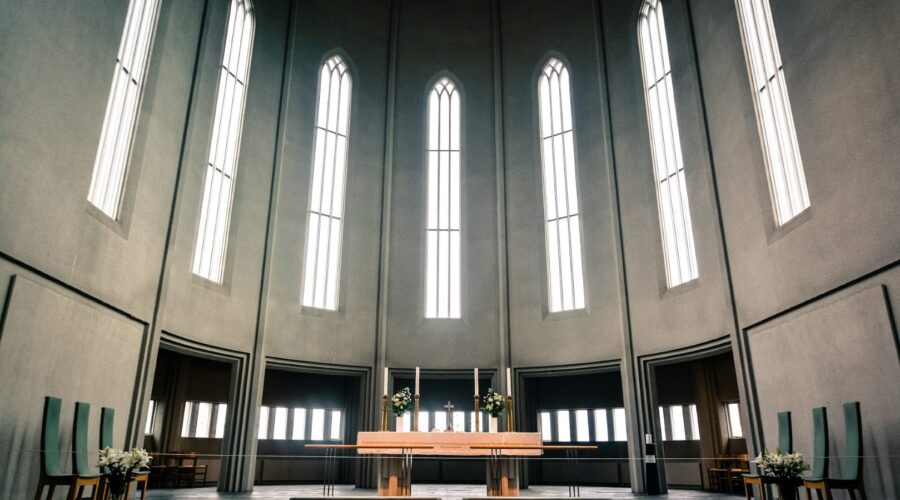
Faith Chapel: A Comprehensive Guide for Pastors and Leaders
Introduction
Faith Chapel is a movement of evangelical churches that emphasizes the importance of personal faith and practical Christian living. Founded in 1964 by Pastor Ray Stedman, Faith Chapel has grown to over 100 churches worldwide. Known for its teaching-focused services and strong emphasis on discipleship, Faith Chapel has become a significant force in evangelical Christianity.
Faith Chapel Beliefs
Core Tenets
- The Bible as the sole authority for faith and practice
- The deity of Christ and His virgin birth
- The necessity of personal faith in Christ for salvation
- The indwelling of the Holy Spirit in every believer
- The importance of practical Christian living
Distinctive Beliefs
- Emphasis on personal faith over adherence to traditions
- Focus on practical application of biblical principles
- Rejection of dispensationalism, believing in the unity of God’s plan throughout history
Faith Chapel Practices
Worship Services
- Emphasis on biblical teaching and exposition
- Contemporary and traditional worship music
- Prayer and communion as central elements
Discipleship and Outreach
- Strong emphasis on mentoring and small group Bible studies
- Opportunities for leadership development and ministry involvement
- Outreach programs to the local community and beyond
Faith Chapel Leadership
Structure and Governance
- Each church is led by a pastor who is accountable to the national leadership team
- Governing board provides oversight and support to the pastor
- Conferences and meetings foster unity and collaboration among churches
Qualifications and Character
- Biblical knowledge and understanding
- Strong preaching and teaching abilities
- Exemplary character and spiritual maturity
Faith Chapel History
- 1964: Founded by Ray Stedman in Palo Alto, California
- 1970s: Rapid growth and establishment of churches across the United States and internationally
- 1990s: Expansion into new ministries and outreach programs
- 2000s: Continuation of growth and emphasis on international missions
Faith Chapel Resources
Online Resources
Books and Publications
- Preparing for the Real World by Ray Stedman
- The Body of Christ by Ray Stedman
- The Power of Prayer by Ray Stedman